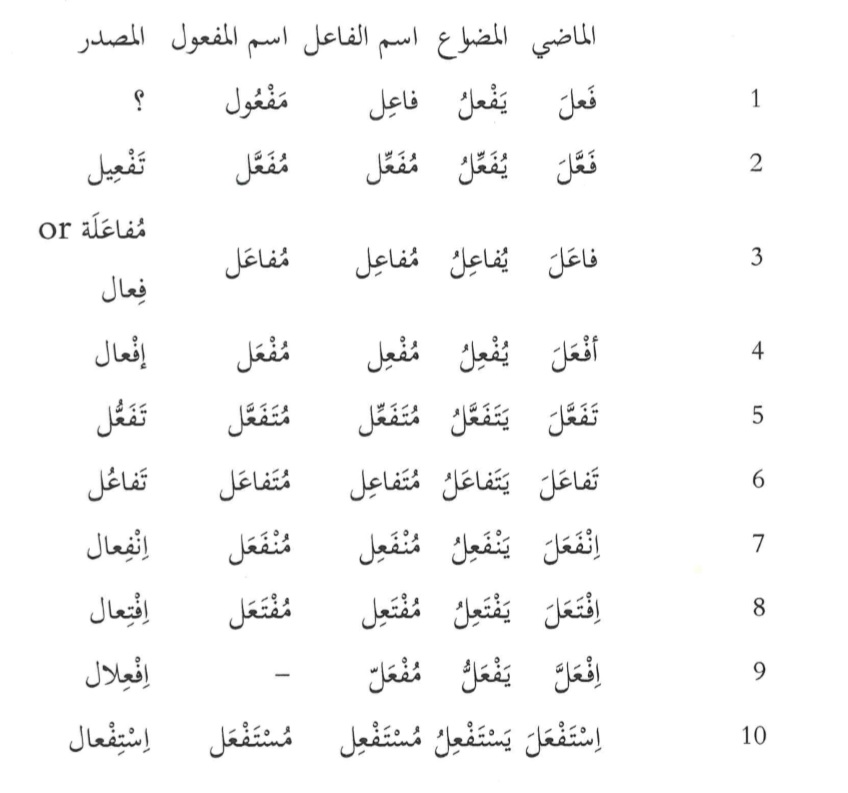For those who are studying Arabic or traveling in Jordan, be sure to keep an ear out for the permutations of قعد/يقعد/قاعد (ga3ad/yug3od/gaa3ed) being used in everyday life. Though in Modern Standard Arabic, you’ll see it used frequently as “to sit”, in Levantine colloquial, and more specifically the Jordanian dialect, you’ll see other definitions attached to the word. To begin, you can find the verb conjugations for the present and past tense of قعد/يقعد below.
أنا أقعد/قعدت (ana ag3od/ga3dit)
أنت تقعد/قعدت (inta tug3od/ga3dit)
إنتي تقعدي/قعدتي (inti tug3odi/ga3diti)
هو يقعد/قعد (huwa yug3od/ga3ad)
هي تقعد/قعدت (heya tug3od/ga3adat)
إحنا نقعد/قعدنا (iHna nug3od/ga3dna)
إنتو تقعدو/قعدتو (intu tug3odu/ga3ditu)
هم يقعدو/قعدو (hum yug3odu/ga3du)
In terms of the usage of قعد/يقعد, its primary definition is “to sit/sit down”.
فات على غرفته و قعد على التخت (faat 3la ghurftu woo ga3ad 3la at-takht) translates to “he entered his room and sat on the bed”.
لما فتت، كان قاعد على التخت (lamma futit, kaan gaa3ed 3la at-takht) translates to “when I entered, he was sitting on the bed”. Note that the term قاعد is the active participle of قعد. Later on in this section, I’ll explain an important secondary meaning for the word قاعد.
بدك تقعدي؟ (biddeck tug3odi?) translates to “would you like to sit?” when asking a female. If you are speaking to a male, you would instead ask بدك تقعد؟ (bidduck tug3od?) If you were to say أقعد/اقعدي (ug3od/ug3odi), it would be telling him or her to sit.
خليك قاعد/خليكي قاعدي (khaleek gaa3ed/khaleeki gaa3edi) translates to “please stay seated” or “don’t get up”.
هو قاعد على نار (huwa gaa3ed 3la naar) is an expression that translates to “he’s really antsy or impatient”. The literal translation is “he is sitting on fire”, which as one might imagine, would probably cause someone to be a little antsy!
قعد/يقعد can also mean to stay or remain, as noted in the following example:
قعد خاطب تقريبا سنتين (ga3ad khaaTib tagreeban sanateen) which translates to “he remained engaged for two years”.
The verb can also mean to start or begin an action. For example, if you were to say قعدت تحكي معي (ga3adat tiHky ma3y), it would translate to “she started talking with me”.
The active participle قاعد (gaa3ed) is frequently used in Jordan and Palestine as a means to signify an action that’s taking place at this very moment (e.g. I am reading, he is eating, they are talking).
أنا قاعد أحكي معهم (ana gaa3ed aHky ma3hum) translates to “I am talking with them”.
الطلاب قاعدين بستنونا (it-Tulaab gaa3edeen bistanunaa) translates to “The students are waiting for us”.
شو قاعد تاكل؟ (shu gaa3ed takl?) translates to “what are you eating?”
Some of you may be wondering “how do I know when to follow قاعد with a verb that begins with “ب” rather than the regular present tense form of the verb?” The truth of the matter is, there isn’t really a set rule concerning this. I’ve seen it used both ways (e.g. أنا قاعد أحكي/أنا قاعد بحكي). That’s one of the fun things about colloquial Arabic — there really isn’t that many stringent grammatical rules.
And I also forgot to mention that different countries use different words in lieu of قاعد. For example, in Syria you’ll find the عم used. So if you were to ask someone in Syria what they were saying, you would ask “شو عم تحكي؟” Since I resided in Jordan for a short period, that’s the dialect that I decided to focus on for this particular lesson.

